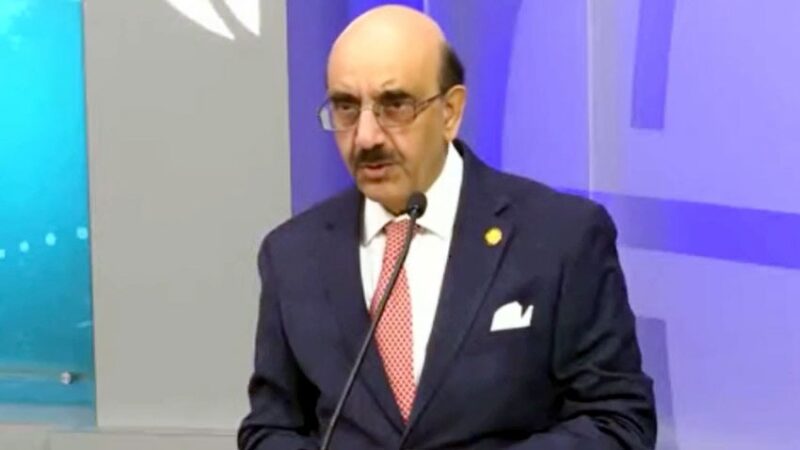WASHINGTON: Pakistan’s Ambassador to the US Masood Khan has said though his country contributed less than 0.4pc to the global greenhouse emissions it is the 8th most vulnerable country to climate change.
The frequency and ferocity of floods, cyclones, glacial melt, heat waves, drought and earthquakes require both domestic preparedness and resilience, as well as international support.
Speaking at a conference on “Resilience and Reform in Pakistan” organized by the Atlantic Council in Washington D.C., the ambassador said that the World Bank had estimated that Pakistan would need nearly $350 billion till 2030 for resilience alone.
He said that the world should help Pakistan in enhancing its capacity and resilience to cope with the challenges of climate change.
About the US-Pakistan Green Alliance, he said the alliance enables Pakistan to promote renewable energy and make agriculture sustainable and productive.
The Green Alliance will help us enhance climate resilience and advance our goals to increase the share of clean energy in our energy mix to 60% from its present 34% by year 2030.
He said Pakistan and the United States have conducted several dialogues in the past one year on trade, investment, energy, climate change, health, science and technology, defense, counterterrorism and counternarcotic.
He said this the good time for US businesses to increase their investments in Pakistan and Pakistani traders and entrepreneurs to enhance their exposure in the US markets.
Masood Khan said the United States has consistently been one of Pakistan’s largest sources of foreign direct investment.
He said over the past three years, US enterprises have invested more than $1.5 billion in Pakistan. Both sides realize that this level of FDI is not enough and needs to be increased.
The ambassador said that Pakistan’s economic potential is much more than that of many countries of the world. He said Pakistan has a promising demographic profile and a profitable consumer market.
He said the country has its own common market that extends to East, Central and West Asia; as well as to the Middle East and Africa. He said the country has a strong and dynamic private sector, both formal and informal, now buoyed by the tech sector.
Masood Khan said Pakistan’s goals include macroeconomic stability and social development, fiscal discipline, absorption of external shocks and improvement in business climate.
He said with the help of the World Bank, Pakistan is also streamlining its current narrow, distortive and unequal tax system to make it broad-based and equitable in order to finance human development, infrastructure development and climate resilience.


Comments are closed.